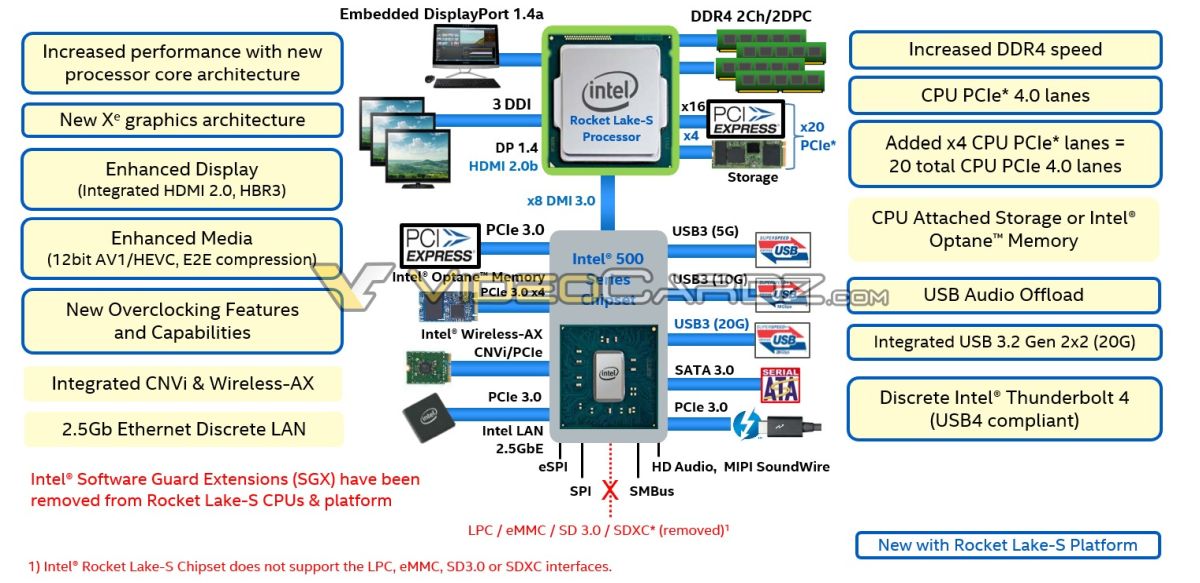According to a diagram leaked to serial leakster, Videocardz, Rocket Lake-S will still be based on the same 14nm die lithography used in Comet Lake-S, but with new and better features. For a start, Rocket Lake-S is expected to support the current PCIe 4.0 interface. Specifically, all Rocket Lake-S CPUs will allegedly have 20 lanes of PCIe 4.0 and primary GPU and NVMe storage will be handled directly from the CPU. Moving on, another supposed addition to the Rocket Lake-S chipset is Thunderbolt 4 and USB 3.2 20G. To be frank, the addition of Thunderbolt 4 isn’t that surprising, especially since it was confirmed by Intel that the interface would be supported on its Tiger Lake platform. Do note that while Thunderbolt 4 is the successor to the current Thunderbolt 3 standard, the transfer speed of the former is still rated at 40Gb/s. The slide also points to Rocket Lake-S CPUs supporting Intel’s still unreleased Xe graphics architecture, but doesn’t say any more than that. Having said that, the slide does serve as confirmation that the 11th generation processors will be able to harness Intel’s Xe-based graphics upon release. Intel says that it plans on launching its Rocket Lake-S lineup something in late 2020, but has failed to provide a firm launch date. It also doesn’t help that the ongoing COVID-19 pandemic has forced several companies and manufacturers to delay their production schedules. So, it wouldn’t surprise us if that general launch timeline gets pushed back further. (Source: Videocardz, Hot Hardware)
